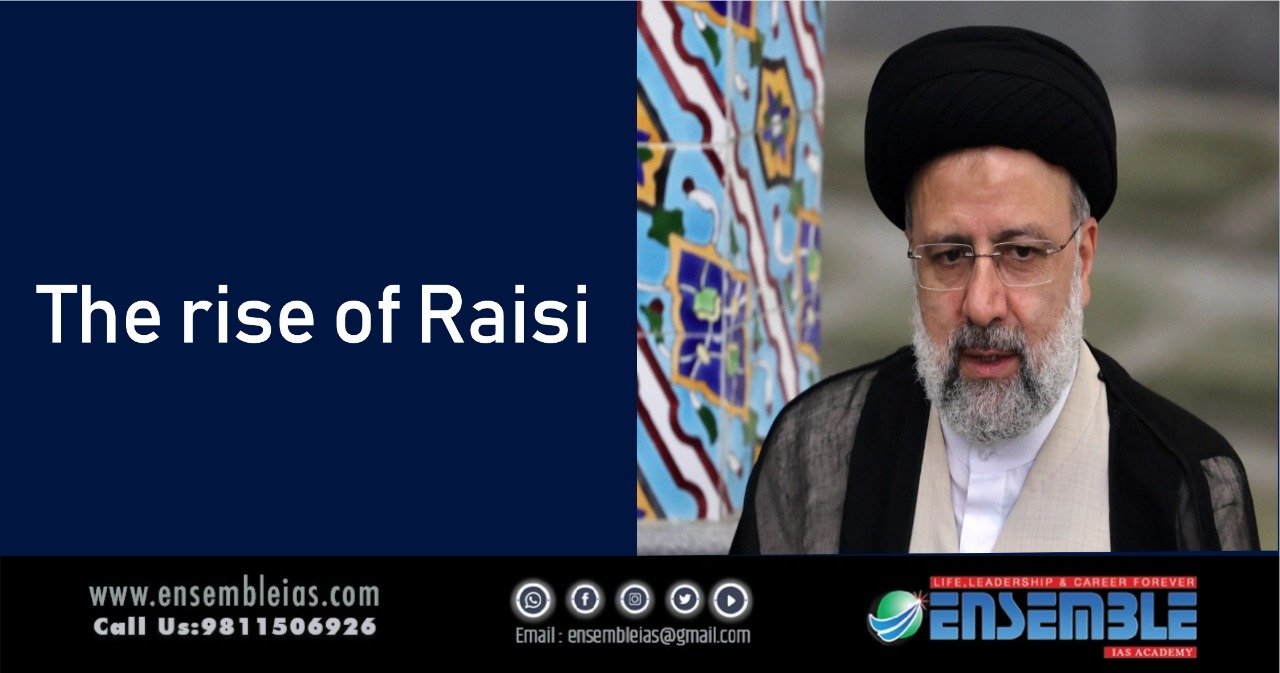The rise of Raisi: On Iran’s new President
To buy our online courses: Click Here
The rise of Raisi: On Iran’s new President: With the election of Ebrahim Raisi, a hardline cleric, as Iran’s President, the Islamic Republic’s ruling clergy have tightened their grip on all institutions of power — the military, Parliament, the judiciary, and the presidency. In Iran’s unique political system, effectively controlled by the Supreme Leader, Presidents, who run the day-to-day affairs, have an important role to play. In the past, the country had seen tensions between moderate/reformist Presidents and the Supreme Leader. While the reformists, a powerful constituency, have pushed for gradual reforms by rallying behind leaders like Mohammad Khatami and Hassan Rouhani, the conservatives always pushed back. In this tussle for power, Mr. Raisi has been the popular face of the establishment for years. He had contested the 2017 presidential elections, but lost to Mr. Rouhani, who was seeking a second term. Believed to be close to Supreme Leader Ali Khamenei, Mr. Raisi was appointed the Chief Justice in 2019, which kept him in the top echelons of power till the presidential elections. There were allegations that the June 18 election was rigged in favour of Mr. Raisi even before the first ballot was cast. The Guardian Council, which vets potential candidates, had rejected almost all major reformists, leaving him the only prominent figure on the ballot. This led to opposition activists calling for an election boycott, which seems to have had an impact on the voting — the turnout was 48.8%, an all-time low. Mr. Raisi won 62% of the vote, while blank ballots came second at 14%.
Also Read: An underrated ecological crisis
Mr. Raisi is a controversial figure. The U.S. has accused him of serving in the “death commission” of 1989 that implemented Ayatollah Khomeini’s secret decree to execute thousands of political prisoners. At home, he has presided over a harsh campaign against “corruption”, which critics say had targeted political rivals. And he assumes the presidency at a time when Iran is facing daunting challenges. The revolution seems to be ageing — the country has seen protests in recent years; the push to reform the system from within, a long-time promise of the reformists, has not made much progress and the economy is in a shambles. When Mr. Rouhani won the presidency in 2013, he promised a new beginning. But his attempts to open a new chapter with the West through diplomacy were set back by Donald Trump, and his policies at home were resisted by the conservatives. Mr. Raisi, who has supported reviving the nuclear deal, might also bank on sanctions being removed to reboot the economy. And there is growing discontent in society and desperate calls for reforms and liberties. For now, Iran’s tactical response to these challenges is repression. Mr. Raisi, as President, should understand that repression will not solve any of Iran’s problems. A member of the clerical establishment, he should use his clout and the election victory to push for gradual economic and political reforms.




